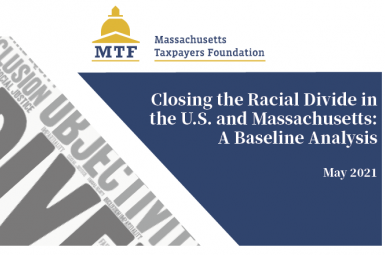The MBCS – a coalition of 27 diverse business organizations from across the state that advocates for equitable skills development policies – and the MBAE Affiliate Network – comprised of 37 chambers of commerce and industry associations from across Massachusetts – support these bills because they expand opportunities for high school students to earn industry-recognized credentials (IRCs) that are tied to labor market demand and high-wage jobs.
The Massachusetts Business Coalition on Skills (MBCS) appreciates your ongoing efforts to prepare an FY 2022 budget that prioritizes economic recovery and invests in workforce skills development. The MBCS is a coalition of 27 diverse business organizations from across the state that advocates for equitable skills development policies so our current and future workforce can meet employers’ needs.
Tackling the racial wealth gap is a top priority for the Black Economic Council, which is located in one of the most inequitable cities in the country. According to a 2021 report by the Massachusetts Taxpayers Foundation, the median net worth of a white household in the U.S. in 2013 was 11 times greater than that of a Black household. In Boston, the median net worth of white household was 31,000 times greater than that of a Black household in 2014.
Long before the pandemic, Black businesses, organizations, and people in MA faced barriers in receiving equitable access to resources and economic opportunities. A May report from the Massachusetts Taxpayers Foundation found closing the wealth gap in Black and Latinx communities would grow the economy by $25 billion over five years, the equivalent of adding 100,000 jobs.
This report is the final installment in a three-part series on the implications of telework for the Commonwealth of Massachusetts in which we explore what the trend toward telework could mean for the broader Massachusetts economy.
The MTF report estimates that the gross state product would increase by $25 billion over five years if Massachusetts were able to close its racial divide in wages, housing, investments and wealth. According to MTF President Eileen McAnneny, much of that increase would come from the greater number of available workers if more Black and Latino students simply had an opportunity to graduate from college.
While “Closing the Racial Divide” delivers sobering warnings about how significant and pervasive racial disparities remain in Massachusetts and the nation, it also documents the enormous economic and fiscal benefits that would flow from ending them. By continuing to measure progress ever more rigorously in these efforts, we can make Massachusetts a true Commonwealth: One society, united, diverse, and equal.
The business-backed Massachusetts Taxpayers Foundation said its 29-page report marks its first exploration of the issue and statistically documents inequities in wealth, income and employment, education, criminal justice, and health care. If Black and Hispanic residents graduated from college at the same rate as white peers, the report said, Massachusetts would realize $20 billion over a decade in increased tax revenues and reduced public-assistance spending.
This report is MTF’s first foray into the topic of racial disparities. Our interest stems from MTF’s commitment to a Commonwealth for economic opportunity for all. Our approach to this report was to research, compile and analyze as much data as we could from credible sources in five key areas—(1) income and wealth, (2) educational attainment, (3) economic opportunity, (4) criminal justice, and (5) healthcare—to provide a baseline of where things currently stand.
If Massachusetts could close the wealth gap in Black and Latino communities, the state could grow its economy by $25 billion over five years, the equivalent of adding up to 100,000 jobs, according to an analysis by the Massachusetts Taxpayers Foundation. The 29-page report, to be released on Wednesday, is an unusual one for the fiscal watchdog group, which typically weighs in on topics such as the state budget or MBTA finances.





